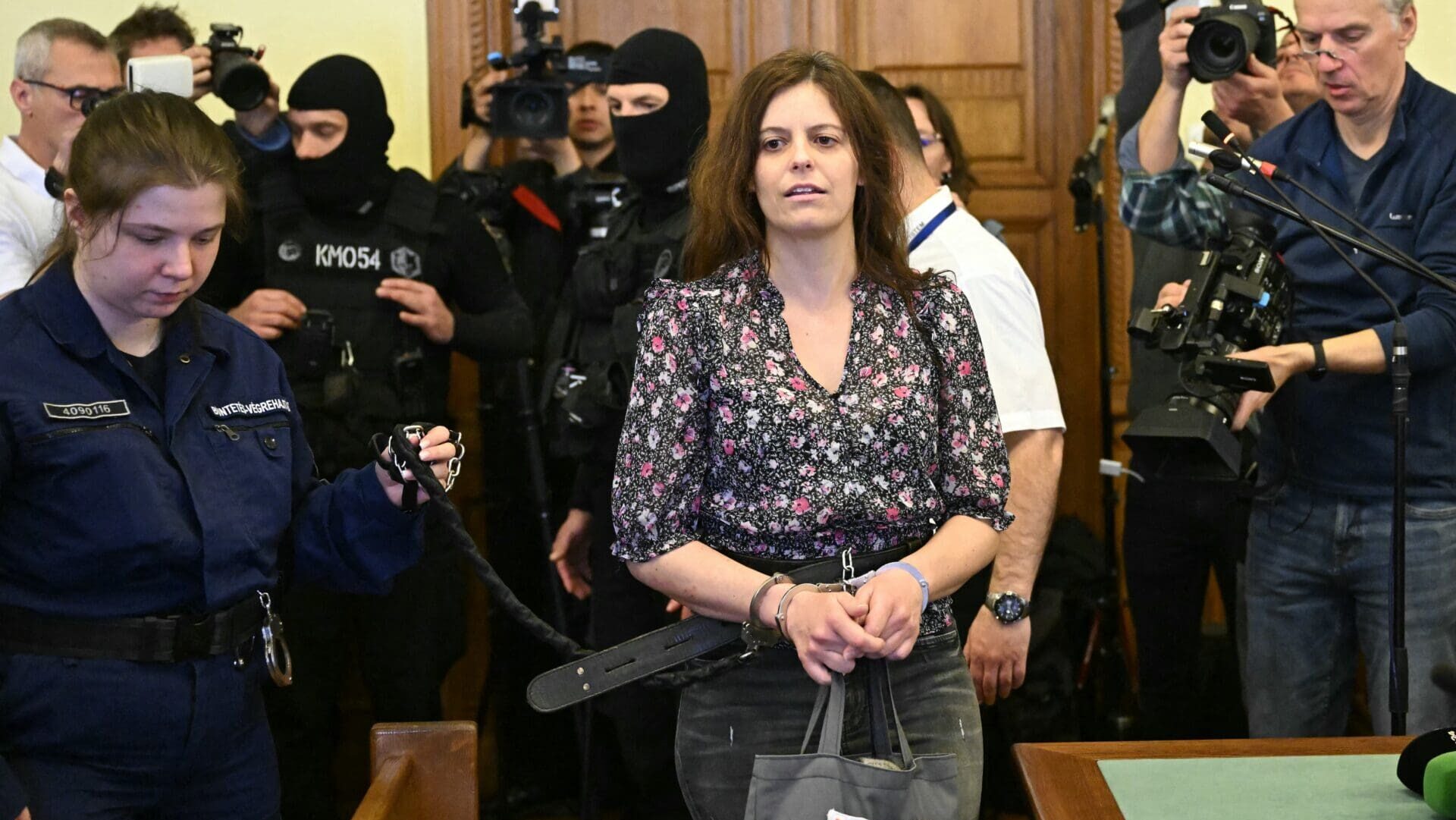We all remember Ilaria Salis. She is the Italian antifa ‘activist’ who has been charged by the Hungarian authorities with attacking innocent civilians in Budapest in February 2023, simply because they looked like ‘neo-Nazis’ based on their appearance. The 39-year-old woman is accused of attempted crime of life-threatening bodily harm committed in a criminal organization, in two cases as an accomplice and in one case as an accessory to a crime. Salis was first remanded in custody and then placed under house arrest in Hungary, causing a major diplomatic rift between Budapest and Rome, two EU members that otherwise enjoy good relations. The situation changed when a far-left Italian party, Alleanza Verdi e Sinistra (AVS), decided to nominate her for the European Parliament elections. Since Salis won a mandate, she has been released from house arrest on the grounds of immunity and now spends her days in Brussels and Strasbourg, working as an MEP. Ironically, the Italian antifa-attacker-turned-politician is now a member of the Civil Liberties, Justice and Home Affairs Committee.
It didn’t take long for Salis to criticize Hungary as an MEP. ‘I was detained in Orban’s Hungary for over 15 months, where my fundamental rights were not guaranteed because of my political beliefs as an antifascist,’ the far-left politician wrote in her first-ever post on X. Salis then thanked voters for her ‘liberation and the freedom of all antifas.’
Hello world!
— Ilaria Salis (@SalisIlaria) July 16, 2024
I am Ilaria Salis and this is my new X account.
Today is my first day at the European Parliament in Strasbourg.
I was detained in Orban’s Hungary for over 15 months, where my fundamental rights were not guaranteed because of my political beliefs as an antifascist.… pic.twitter.com/YlkKq26Aw9
Zoltán Kovács, Hungarian State Secretary for International Communication and Relations, was quick to respond to Salis’ accusations. In a post on X, he called on Salis’ defenders to ‘stop whitewashing a communist terrorist who led a group that almost killed someone on the streets of Budapest in broad daylight.’
Oh, and here's more about Hungary "not granting" those "fundamental rights." Stop whitewashing a communist terrorist who led a group that almost killed someone on the streets of Budapest in broad daylight.https://t.co/CplmrpTSmX https://t.co/yey6xOXouB
— Zoltan Kovacs (@zoltanspox) July 16, 2024
The words of the Secretary of State are no exaggeration. One of the victims of the attack by Salis and her gang, László Dudog, gave an interview to the Italian newspaper Il Giornale, which was also reported by Hungarian Conservative.
He explained the horrific details as such: ‘my fiancée and I were attacked and injured with bars, batons and knives by those criminals…They smashed my head with bars. My fiancée was stabbed twice in the leg.
It’s a miracle we’re alive’.
He said he did not know why the far-left attackers chose them: ‘No one, upon seeing us, could discern whether we were aligned with the right or the left. We walked around, holding hands and chatting, just like many other couples.’
As he mentioned, the ambush caught them completely off guard, and he did not even have time to glimpse at the attackers’ faces. ‘The initial blows to my head were so severe that I immediately lost consciousness. I only recall the paramedics administering first aid before I was transported into the ambulance, and the policemen questioning me about the incident.’ The victim stated that his fiancée was stabbed in the thigh, pepper-sprayed, and kicked in the face. ‘Even now, a year later, she still has a bone fragment protruding beneath her eye.’ The man added that the attack resulted in the complete paralysis of the left side of his face.
The crimes most likely perpetrated by Salis and her comrades, garnered significant media attention beyond its inherent cruelty also due to the major diplomatic disagreement it sparked between Hungary and Italy. The Italian public was outraged by images of Salis being led to trial in chains, which by the way is a practice in accordance with Hungarian law. Additionally, Salis complained about the conditions of her detention, which further fuelled the tension. (Many of her claims were completely disproved by the Hungarian prison authorities.)
Salis’s family called on the Italian government to intervene to allow her to spend her house arrest in Italy. Amidst rumours that the Italian government, led by Giorgia Meloni, might interfere in the Hungarian justice system, Italian Justice Minister Carlo Nordio denied such claims. He stated: ‘The suggestion that an Italian minister should advise an Italian or foreign judge on how to act would be considered sacrilegious by all rights.’
Hungarian Minister of Foreign Affairs and Trade Péter Szijjártó, gave an interview to Italian public service television Rai 1 regarding the case at the time. He stated that he is appalled by the way the Italian media has covered the case, portraying Salis as a ‘martyr’ while failing to report truthfully on the real victims—the people Salis and the other members of the Antifa gang brutally beat in Budapest last year. The minister declared that
he hoped Salis would receive ‘the deserved punishment’.
On the same day the interview was released, Italian Foreign Minister Antonio Tajani and Minister Szijjártó met in Rome to discuss a number of European issues. As reported by Italian news agency ANSA, speaking to the press after the meeting, Tajani denied his government had interfered in the case. He highlighted that said his government would continue to push to make sure Salis’s detention conditions were adequate, ‘without any desire to interfere, but with the clear intention of exerting pressure to verify that the conditions of detention respect European norms that uphold the safeguarding of human rights.’
Read more on the subject:







